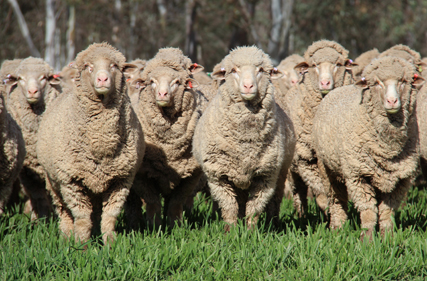 The Peter Westblade Merino Memorial Challenge (PWMMC) has proved the accuracy of the new DNA Flock Profiler Test under development by the Cooperative Research Centre for Sheep CRC.
The Peter Westblade Merino Memorial Challenge (PWMMC) has proved the accuracy of the new DNA Flock Profiler Test under development by the Cooperative Research Centre for Sheep CRC.
During its initial testing phase in early 2016 the Sheep CRC investigated if average genomic breeding values could be calculated for a sheep flock, even with distant or unknown relationships to the reference population.
To validate the concept animals from the PWMMC wether trial were DNA tested, with the test results aligning neatly with production values measured on the ground.
“It is extremely encouraging to see how strong the Flock Profile benchmark information has lined up with the results published for the PWMMC,” Sally Martin, director of Sally Martin Consulting said.
“This work highlights yet again the consistency between estimated breeding values and wether trial results. The Merino industry now has another tool we can use to benchmark our progress and help make more informed genetic selection decisions.”
Sally Martin Consulting and Craig Wilson and Associates oversaw the running of the Peter Westblade Merino Memorial Challenge (PWMMC) in the Riverina of New South Wales, with the trial results again emphasising the value of objective data.
The PWMMC is a two-year genetic evaluation measuring wool, meat and growth traits of entrant’s teams of wethers. The Meat Challenge measures commercially relevant carcase and meat traits under feedlot conditions, while the Wool Challenge wethers are run on pasture and analysed over two years.
The challenge is designed to assist Merino breeding operations make more informed decisions on their Merino genetics by showing participants and the wider sheep industry the genetic opportunities that exist to be more profitable.
“Consistently on the wool side we’re seeing an 80% difference in net profit between the top and the bottom teams, and on the meat side we see differences of 30-40% in carcase value,” Mr Wilson said. “And we’re also seeing in the feedlot a massive variation in weight gain, so when the average is 220g/day, the top 10% are doing 400g/day which is quite extraordinary.
